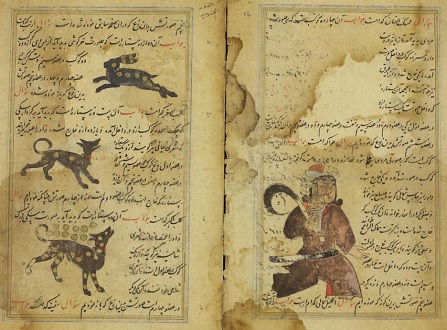Philosophical questions
להגדלת הטקסט להקטנת הטקסט- ספר
Philosophical Questions: East and West is an anthology of source material for use in comparative courses in philosophy, religion, and the humanities. The readings-derived from the great works of the Indian, Chinese, Japanese, Islamic, and Western intellectual traditions-are presented as answers to some of the most enduring questions in philosophy.
| כותר |
Philosophical questions : East and West / edited by Bina Gupta and J.N. Mohanty. |
|---|---|
| מוציא לאור |
Lanham, Maryland : Rowman & Littlefield |
| שנה |
[2000] |
| הערות |
Description based upon print version of record. Includes bibliographical references and index. |
| הערת תוכן ותקציר |
Cover Title Page Copyright Page Table of Contents Preface General Introduction: A Framework for Comparative Philosophy Part 1: Metaphysics 1.1: Introduction: What Is Real or Reality? 1.2: Parmenides, The Way of Truth 1.3: Aristotle, Metaphysics 1.4: Rg Veda: Hymn to Creation 1.5: Atharva Veda: Hymn to Time 1.6: Upanisad: Īs a 1.7: Upanisad: Kena 1.8: Śamkara: Superimposition 1.9: Eliot Deutsch, ""Brahmann"" 1.10: Lao Tzu, Tao Te Ching 1.11: Charles Wei-Hsun Fu, ""Lao Tzu's Conception of Tao"" 1.12: Chang Tsai, The Philosophy of Material Force 1.13: Nāgārjuna, Conditioning Causes and Niruāna1.14: Kitarō Nishida, ""The True Nature of Reality"" Study Questions Suggestions for Further Reading Part 2: Epistemology 2.1: Introduction: What Are the Nature and Sources of Knowledge? 2.2: Plato, The Nature of Knowledge (Theaetetus) 2.3: Plato, Theory of Recollection (Meno) 2.4: Gautama and Vātsyāyana, Means of True Cognition 2.5: Dharmarāja, Cognition Generated by a Sentence 2.6: Śrī Dharmakirti, Cognition 2.7: Al-Ghazāli, ""Deliverance from Error 2.8: Renē Descartes, Meditations 2.9: Huston Smith, ""Western and Comparative Perspectives on TruthStudy Questions Part 3: Ethics 3.1: Introduction: On What Principles Do I Judge Things Right and Wrong? 3.2: Gautama Buddha, The First Sermon 3.3: Plato, Euthyphbro 3.4: Aristotle, Nichomachean Ethics 3.5: Confucius, The Analects 3.6: Mo Tzu, Universal Love 3.7: The Bhagavad Gītā: Action, Knowledge, and Devotion 3.8: Abul A'la Maududi, Political Theory of Islam 3.9: Immanauel Kant, The Categorical Imperative 3.10: John Stuart Mill, Utilitarianism 3.11: Simone de Beauvoir, Ambiguity and Freedom3.12: Martin Luther King, Jr., ""Letter from Birmingham Jail 3.13: Mahatma Gandhi, Ahimsā 3.14: Wing-tsit Chan, ""Chinese and Western Interpretations of Jen""(Humanity) Part 4: Religion 4.1: Introduction: Does God Exist? What Is the Nature of God? 4.2: St. Anselm, The Ontological Argument 4.3: St. Thomas Aquinas, The Cosmological Argument 4.4: Wang Ch'ung, On Spontaneity and A Discussion of Death 4.5: The Qur'ān , The Conception of God in Islam 4.6: Sri Aurobindo, ""Reality Omnipresent 4.7: Kaiten Nukariya, ""Zen EnlightenmentStudy Questions Part 5: Philosophical Anthropology 5.1: Introduction: What Is the Nature of Human Beings? 5.2: Mencius, Human Nature 5.3: Isma'īl Rāgī al Fārūqī, The Nature of Man in Islām 5.4: Immanuel Kant, ""What Is Enlightenment"" 5.5: Immanuel Kant, ""Is the Human Race Continually Improving?"" 5.6: Martin Heidegger, ""The 'Who' of Dasein"" 5.7: Rabindranath Tagore, ""Man's Nature"" 5.8: Takie Sugiyama Lebra, ""Self in Japanese Culture"" Index About the Editors |
| סדרה |
Philosophy and the global context |
| היקף החומר |
1 online resource (489 p.) |
| שפה |
אנגלית |
| שנת זכויות יוצרים |
2000 |
| מספר מערכת |
997010720471205171 |
תצוגת MARC
יודעים עוד על הפריט? זיהיתם טעות?

 כניסה עם גוגל
כניסה עם גוגל
 כניסה עם פייסבוק
כניסה עם פייסבוק



